
Free Download Pharmacy Practice Notes in pdf – Bpharm 7th Semester. High quality, well-structured and Standard Notes that are easy to remember.
Welcome to Pharmdbm.com
Pharmdbm provides standard or well-structured Notes for Bpharm students. The notes are free to download. Each semester notes of Bpharm are available on www.pharmdbm.com.
In this post you can download notes of Pharmacy Practice (BP703T). All units are available to download for free.
Pharmacy Practice Notes Unit 1 – 5
UNIT – 1
Hospital and its organization, Hospital pharmacy and its organization, Adverse drug reaction, Community Pharmacy
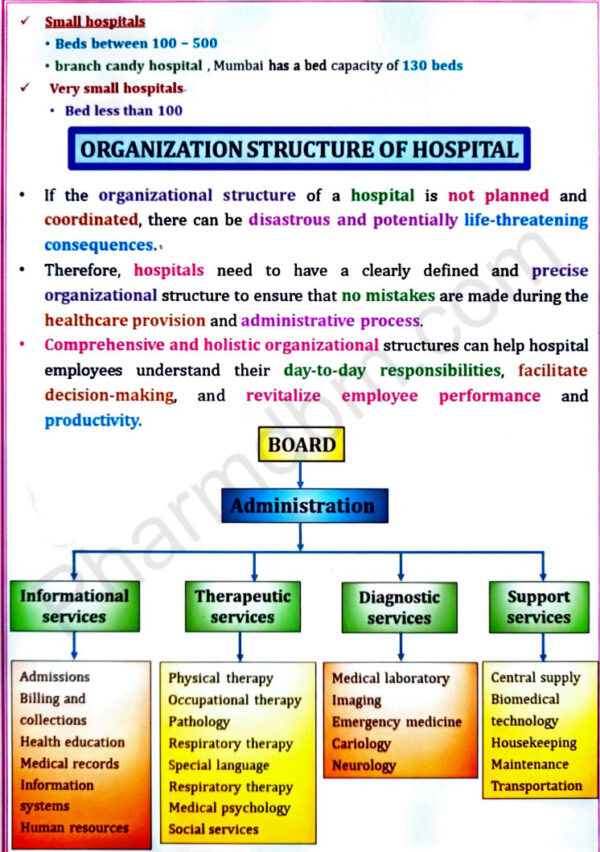
UNIT – 2
Drug distribution system in a hospital, Hospital formulary, Therapeutic drug monitoring, Medication adherence, Patient medication history interview, Community pharmacy management
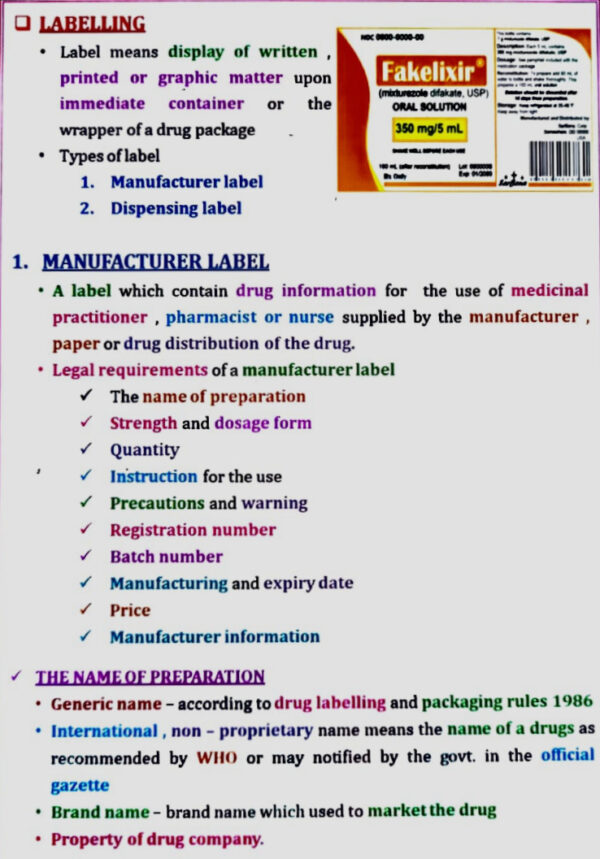
UNIT – 3
Pharmacy and therapeutic committee, Drug Information Services, Patient Counseling, Education and training program in the hospital, Prescribed medication order and communication skills
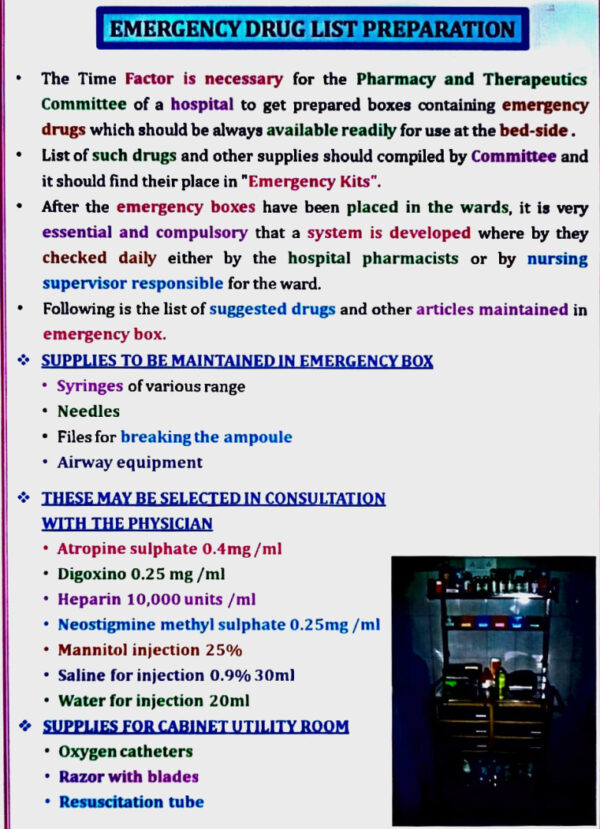
UNIT – 4
Budget Preparation and implementation, Clinical Pharmacy, Over the counter (OTC) sales
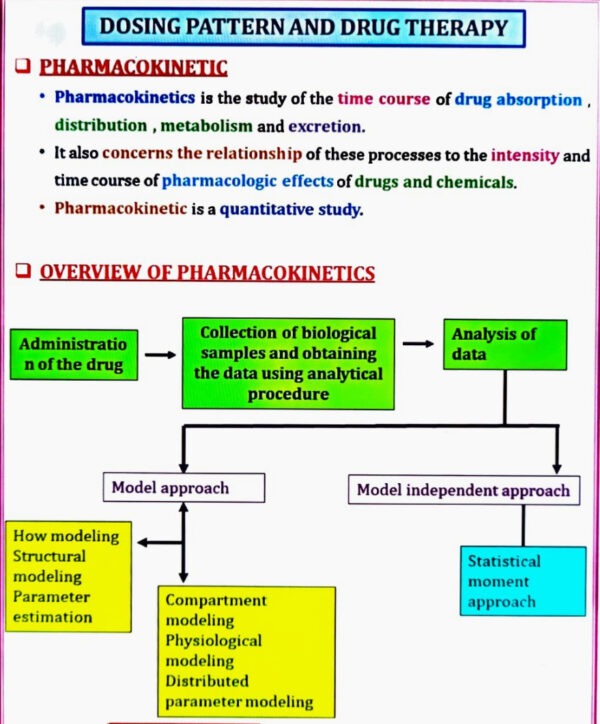
UNIT – 5
Drug store management and inventory control, Investigational use of drugs, Interpretation of Clinical Laboratory Tests
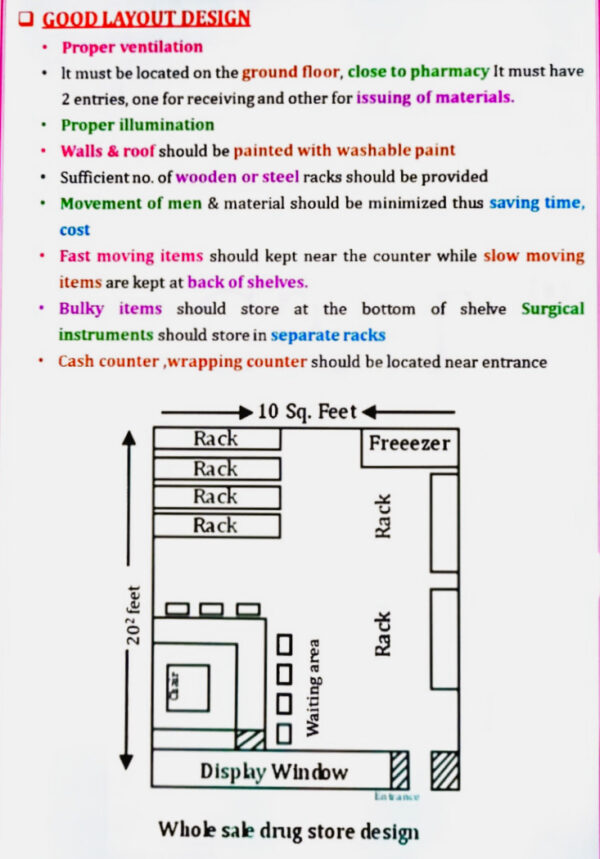
Scope of Pharmacy Practice
In the changing scenario of pharmacy practice in India, for successful practice of
Hospital Pharmacy, the students are required to learn various skills like drug distribution,
drug information, and therapeutic drug monitoring for improved patient care. In
community pharmacy, students will be learning various skills such as dispensing of
drugs, responding to minor ailments by providing suitable safe medication, patient
counselling for improved patient care in the community set up.
Objectives of Pharmacy Practice
Upon completion of the course, the student shall be able to
- know various drug distribution methods in a hospital
- appreciate the pharmacy stores management and inventory control
- monitor drug therapy of patient through medication chart review and clinical
review - obtain medication history interview and counsel the patients
- identify drug related problems
- detect and assess adverse drug reactions
- interpret selected laboratory results (as monitoring parameters in therapeutics) of
specific disease states - know pharmaceutical care services
- do patient counseling in community pharmacy;
- appreciate the concept of Rational drug therapy.
Syllabus of Pharmacy Practice
Unit – 1
a) Hospital and it’s organization
Definition, Classification of hospital- Primary, Secondary and Tertiary hospitals,
Classification based on clinical and non- clinical basis, Organization Structure of a
Hospital, and Medical staffs involved in the hospital and their functions.
b) Hospital pharmacy and its organization
Definition, functions of hospital pharmacy, Organization structure, Location, Layout
and staff requirements, and Responsibilities and functions of hospital pharmacists.
c) Adverse drug reaction
Classifications – Excessive pharmacological effects, secondary pharmacological
effects, idiosyncrasy, allergic drug reactions, genetically determined toxicity, toxicity
following sudden withdrawal of drugs, Drug interaction- beneficial interactions,
adverse interactions, and pharmacokinetic drug interactions, Methods for detecting
drug interactions, spontaneous case reports and record linkage studies, and Adverse
drug reaction reporting and management.
d) Community Pharmacy
Organization and structure of retail and wholesale drug store, types and design, Legal
requirements for establishment and maintenance of a drug store, Dispensing of
proprietary products, maintenance of records of retail and wholesale drug store
UNIT – 2
a) Drug distribution system in a hospital
Dispensing of drugs to inpatients, types of drug distribution systems, charging policy
and labelling, Dispensing of drugs to ambulatory patients, and Dispensing of
controlled drugs.
b) Hospital formulary
Definition, contents of hospital formulary, Differentiation of hospital formulary and
Drug list, preparation and revision, and addition and deletion of drug from hospital
formulary.
c) Therapeutic drug monitoring
Need for Therapeutic Drug Monitoring, Factors to be considered during the
Therapeutic Drug Monitoring, and Indian scenario for Therapeutic Drug Monitoring.
d) Medication adherence
Causes of medication non-adherence, pharmacist role in the medication adherence, and monitoring of patient medication adherence.
e) Patient medication history interview
Need for the patient medication history interview, medication interview forms.
f) Community pharmacy management
Financial, materials, staff, and infrastructure requirements.
UNIT – 3
a) Pharmacy and therapeutic committee
Organization, functions, Policies of the pharmacy and therapeutic committee in
including drugs into formulary, inpatient and outpatient prescription, automatic stop
order, and emergency drug list preparation.
b) Drug information services
Drug and Poison information centre, Sources of drug information, Computerised
services, and storage and retrieval of information.
c) Patient counseling
Definition of patient counseling; steps involved in patient counseling, and Special
cases that require the pharmacist
d) Education and training program in the hospital
Role of pharmacist in the education and training program, Internal and external
training program, Services to the nursing homes/clinics, Code of ethics for community
pharmacy, and Role of pharmacist in the interdepartmental communication and
community health education.
e) Prescribed medication order and communication skills
Prescribed medication order- interpretation and legal requirements, and
Communication skills- communication with prescribers and patients.
UNIT – 4
a) Budget preparation and implementation
Budget preparation and implementation
b) Clinical Pharmacy
Introduction to Clinical Pharmacy, Concept of clinical pharmacy, functions and
responsibilities of clinical pharmacist, Drug therapy monitoring – medication chart
review, clinical review, pharmacist intervention, Ward round participation, Medication
history and Pharmaceutical care. Dosing pattern and drug therapy based on Pharmacokinetic & disease pattern.
c) Over the counter (OTC) sales
Introduction and sale of over the counter, and Rational use of common over the
counter medications.
UNIT – 5
a) Drug store management and inventory control
Organisation of drug store, types of materials stocked and storage conditions, Purchase
and inventory control: principles, purchase procedure, purchase order, procurement
and stocking, Economic order quantity, Reorder quantity level, and Methods used for
the analysis of the drug expenditure.
b) Investigational use of drug
Description, principles involved, classification, control, identification, role of hospital
pharmacist, advisory committee
c) Interpretation of Clinical Laboratory Tests
Blood chemistry, hematology, and urinalysis


